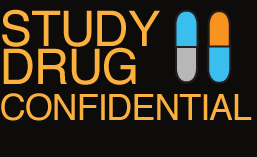Climbing to the top of the pile is easier if you’re tall and so much easier still if you have a ladder.
Good nutrition, stimulation in early childhood, engaged parenting, an upbringing free from violence, and high socioeconomic status are some of the key factors behind student success at post-secondary institutions. It’s long been accepted that these advantages create something of an uneven academic playing field.
Taking a study drug can increase those advantages even further.
The picture of study drug users at US schools, where the majority of the research has been conducted, tends to be white, members of fraternities and sororities, and attending schools with competitive admissions standards in the American northeast.
Is getting an extra boost up the rungs of life recognized as wrong, justifiable, or merely the impact of peer-pressure?
Here’s what students had to say:
In bioethical terms, the motivation for use helps decide its acceptability.
Bioethicists have suggested that the use of amphetamines could be allowable (and even desirable) in certain professions, where there is a net benefit to society – for example, oncologists racing towards the cure for cancers could be aided by the cognitive enhancement offered by study drugs.
In an institution of higher learning, students are motivated by a constellation of drivers: self-betterment, education as an inherent good, competition for post-education employment, parental pressure to achieve and graduate.
Where do students think study drugs sit on a spectrum of societal acceptability starting at coffee (completely) and extending to steroids?
Equal access to study drugs requires, at minimum, the knowledge/education to seek out the medication, physical access to a doctor to access a prescription, the ability to feign symptoms or a doctor willing to prescribe a drug for the purpose of cognitive enhancement, and money to afford a prescription.
Many students seek drugs through friends who already have prescriptions: someone diagnosed with ADHD who is being overprescribed. Sometimes that access comes at no cost. But, because of a persistent demand and limited supply, there is an economic incentive to turn friends into dealers and vice versa.
ETHICAL DILEMMAS: “everyone here is an overachiever.” | health risks vs. potential benefits | an unfair advantage? | now entering your Adderall state
THE SUPPLY CHAIN: supply&demand | a balancing act | preventive tweets
